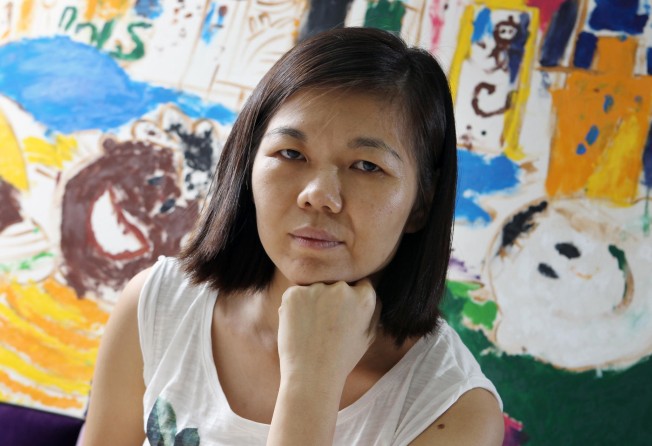Defender of the minorities will call it a day
Fermi Wong Wai-fun feels it is time to let others take over after 15 years at the helm of Unison

The woman behind the foremost organisation championing the rights of the ethnic minorities is stepping down.
But she warns that more like-minded people will be taking up the baton and keeping the pressure on the government to ensure equal rights for the city's non-Chinese community.
Calling herself the Education Bureau's worst nightmare, Fermi Wong Wai-fun has been fighting for the rights of non-Chinese Hongkongers for 15 years.
Among her causes was to lobby for Chinese as a second language in the school curriculum and to get rid of segregated schools. Yet to achieve both goals, Wong said: "I've come to a point where I think my lobbying, or my tactics, are getting nowhere. So maybe it's time for me to step aside and let others try."
The head of the non-governmental organisation Unison has dealt with four sets of government administrators and called for a change in the bureaucratic mentality because she felt that she had been hitting her head against a wall.
Unison has started looking for a replacement for Wong, who plans to step down by the end of the year.
Wong founded Unison - the most outspoken non-profit group advocating for the rights of the minorities - in 2001, when she realised that policies had to be changed to help non-Chinese Hongkongers get out of poverty and not be segregated in society. The NGO does not receive any funding and relies on donations to help it in its work.
Unison has grown from an organisation run by one woman without a salary to one that has seven full-time and two part-time staff, as well as more than 1,000 volunteers.
Wong started her career in 1995 as a social worker. She "stumbled upon" the issue when she tried to find primary school places for more than 40 local South Asian children.
"Some of them had been waiting [for a Primary One] space for two years," she said. Only two primary schools would take children from ethnic minorities due to their lack of Chinese language skills. Only four of the 1,200 schools accepted ethnic minority children then.
"Apparently, [Hong Kong's then] nine years' of compulsory education did not apply to those of South Asian ethnicities," she said. Wong called all the 12 primary schools in the area and secured places for some children.
After that experience, she decided to focus on obtaining equal rights for Hong Kong's non-Chinese, mostly South Asian, working-class people.
She also spent a lot of time dealing with the drug problems affecting some of the ethnic children. A "free heroin campaign" by the triads in 1999 to 2000 in areas heavily populated by the ethnic minorities snared many young people, who then became addicted to drugs.
Wong said at the height of the problem, she had 200 cases of heroin addiction on her hands.
"I have lost dozens of children to drugs," she said, recalling the days when she would frequent the city's jails to bail the youngsters out.
Many of these children had since emigrated to Britain because of the language barrier here and also because the city was too hostile for them, she said.
Things became worse for the minorities after the handover because Chinese had become a more dominant language.
"I have my concerns about stepping down, but then I realised there would never be a good time," she said. "But I need to rest as my health is becoming a huge issue."